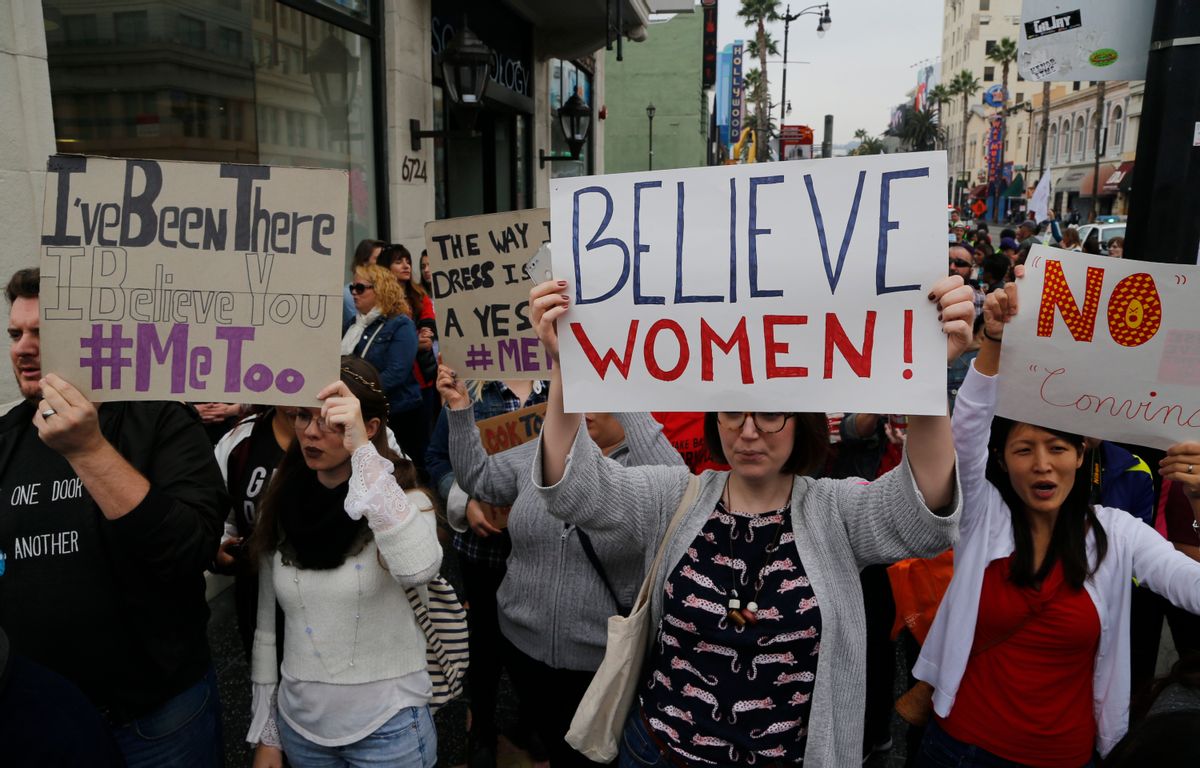When was the last time you agreed to keep a secret?
Perhaps it was a personal confidence shared by a close family member or friend. Or it might have been in a contract with your employer to safeguard confidential information. Either way, you probably felt a strong sense of obligation to keep that secret.
At least when it comes to the workplace, that’s no accident. In the United States, the idea that workers owe their employers a duty of loyalty goes back more than 100 years. It is deeply ingrained in legal rules and American culture.
But it has been fraying, most recently in the form of former Trump lawyer Michael Cohen’s damning congressional testimony against the president.
This trend was also on full display when the #MeToo movement went viral in 2017. #MeToo was, of course, about sexual harassment and assault. But it was also a form of mass whistleblowing. The movement signaled victims’ willingness — at an unprecedented scale — to defy promises of secrecy to their employers in service of a larger truth by revealing their experiences of workplace harassment.
While researching a book on the duty of loyalty, I realized that the #MeToo movement isn’t merely a rift in the ordinary order of workplace relationships in the United States. It is part a larger legal and cultural shift that has been in the works for decades.
Employee fealty
The duty of loyalty is the idea that you “cannot bite the hand that feeds you and insist on staying for future banquets,” as an American labor arbitrator wrote in 1972.
It’s a bedrock principle that courts apply to employment disputes, even if you didn’t sign a contract promising to keep an employer’s secrets.
The duty of loyalty is why employers can demand that you sign a confidentiality agreement at the start of employment. It’s why workers can’t download their employer’s trade secrets on a thumb drive and use it in their new job. And why companies are able to persuade judges to enforce noncompete agreements.
This duty is also why American courts were slow to protect whistleblowers for disclosing information that betrayed their employer but protected the public interest. As recently as the 1980s, most state courts did not recognize an employee’s right to protest or expose illegal or harmful conduct.
In a 1982 case in Texas, a nursing home fired a nurse’s aid who complained when her boss refused to call a doctor for a patient suffering a stroke. Unmoved by the nurse’s efforts to save the patient, the court dismissed the employee’s case.
A shift toward protecting whistleblowers
In recent decades, however, courts and lawmakers in the United States have shifted away from prioritizing an employer’s right to loyalty and toward reaping the public benefits of whistleblowers.
As legal scholar Richard Moberly documented, the U.S. Supreme Court has been remarkably consistent in recent decades in protecting private sector whistleblowers. Congress has moved in the same direction, taking on whistleblower protections in major federal legislation, including the Affordable Care Act and the Dodd-Frank financial reform statute.
Indeed, the righteousness of whistleblowers has become a rare matter of bipartisan consensus. In 2017, every lawmaker in both the House and Senate voted in favor of a law expanding whistleblower protections for federal employees.
Over the last 10 years, even social media posts have been recognized as a form of whistleblowing. In 2011, the National Labor Relations Board, which regulates unionization and collective bargaining in the United States, declared that social media posts are legally protected if their aim is to mobilize others to address workplace issues.
To its credit, the labor relations board realized that many important workplace discussions now happen over social media.
#MeToo crosses the Rubicon
The #MeToo movement did not represent a tidal wave of recent harassment — many of the revelations were years old. What made it historic was the way so many women were willing to publicly expose their employer and thus cross the Rubicon to whistleblower status.
It was a combination of online and offline whistleblowing. A number of the women who disclosed information to the media against Harvey Weinstein and other prominent men did so in defiance of contracts they signed promising secrecy. The millions of others who posted on social media may have also theoretically risked breach of contract claims — although Title VII of the Civil Rights Act offers a form of whistleblower protection.
The political response to #MeToo has also tended to treat it as a whistleblower story. Few of the enacted state laws or proposed federal laws alter existing rules regarding workplace harassment. Instead, these bills have primarily sought to make it harder for U.S. employers to keep harassment secret.
The end of loyalty?
Employees are increasingly willing to defy employer demands for secrecy involving immoral, illegal or harmful conduct. And when they do speak up, lawmakers and courts are increasingly willing to back them up.
The #MeToo movement might be the first mass whistleblower event. But it’s probably not the last, which means we should expect the duty of loyalty to fall further from the legal pedestal on which it once stood.
Elizabeth C. Tippett, Associate Professor, School of Law, University of Oregon
This article is republished from The Conversation under a Creative Commons license.



Shares